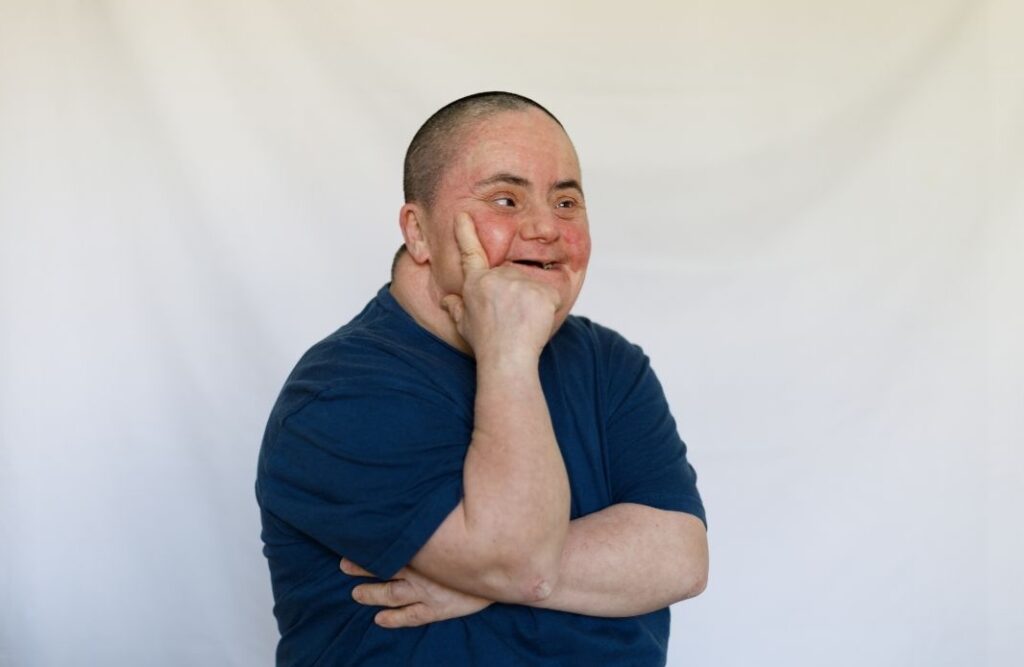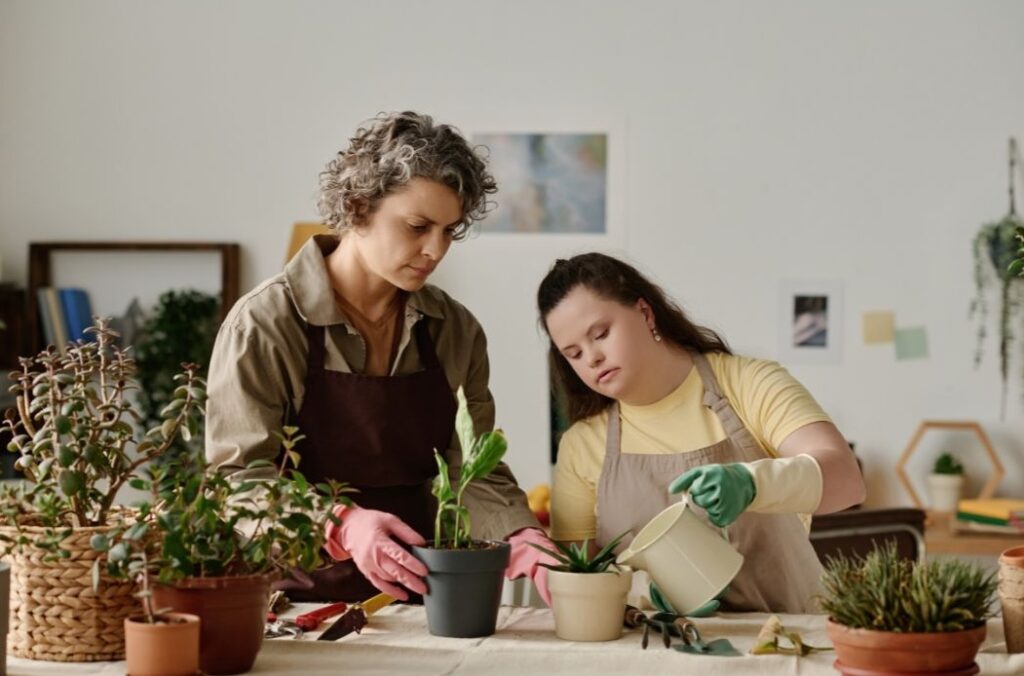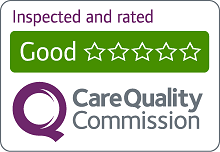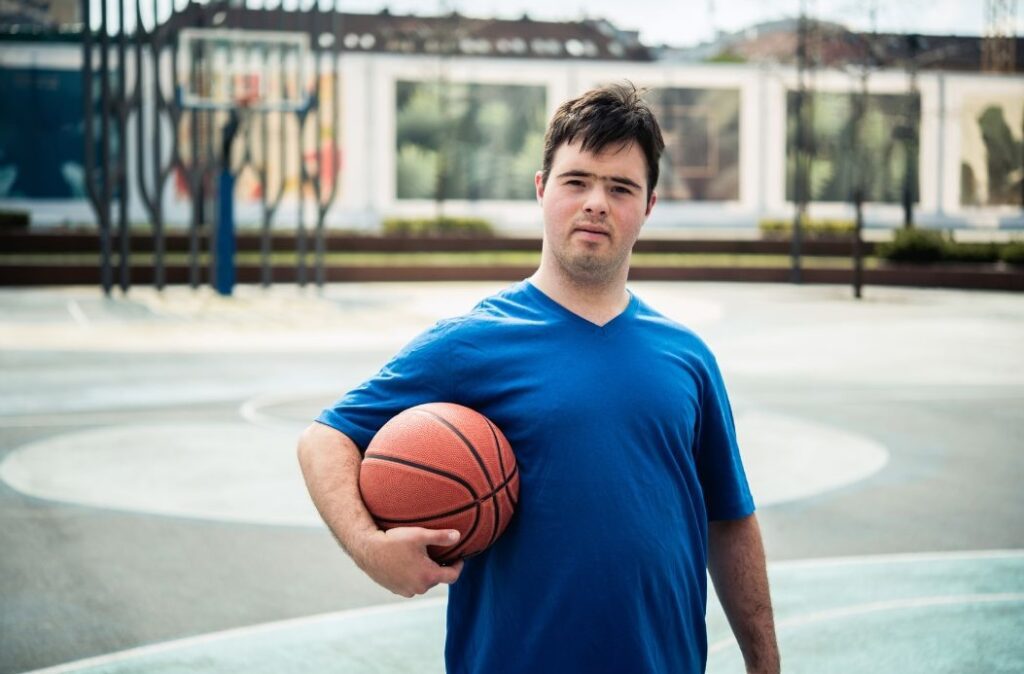Welcoming families and carers of teens and young adults with Down Syndrome, it’s essential to approach the topic of development with both warmth and expertise.
Down Syndrome, a genetic condition arising from an extra copy of chromosome 21, profoundly influences physical and cognitive development.
Understanding how Down Syndrome affects development is crucial in tailoring care and support to nurture the individual’s growth and well-being.
This piece aims to shed light on how Down Syndrome affects development and introduces how IP Live-in Care can offer specialised assistance to positively impact their physical development and overall life experience.
Together, we’ll explore the intricacies of caring for an individual with Down syndrome and its effect on development and how dedicated care can make a significant difference.
Muscle Tone and Strength

The Down syndrome and development journey is notably marked by hypotonia, leading to challenges in posture, balance, and coordination.
This issue through Down syndrome delayed development can hamper motor milestones, especially as adolescents experience growth spurts that may exacerbate muscle tone concerns.
To counteract these effects, incorporating regular physiotherapy exercises at home like swimming, walking, or yoga is crucial for enhancing muscle strength.
A holistic approach, emphasising physical, mental, and social well-being, supported by family, carers, and healthcare professionals, is key in fostering comprehensive care for teens and young adults with Down Syndrome and development issues.
Growth
In late teens and young adults, Down Syndrome affects development through delayed growth and puberty – some of the most common impacts on physical development.
A balanced diet plays a crucial role in supporting optimal growth during these critical years. Unlike their peers, those with Down Syndrome may experience hormonal changes and the onset of puberty later, underscoring the importance of regular medical checkups.
These checkups help monitor health developments and adjust care plans, ensuring each individual receives the support they need for healthy development.
IP Live-in Care can provide tailored support in managing these unique developmental milestones, offering guidance on nutrition and healthcare coordination.
Sensory Processing

Late teens and young adults with Down Syndrome may experience heightened sensory sensitivity, which can significantly influence their daily lives.
Sensory triggers, such as loud noises or certain textures, may not only disrupt routines but also pose challenges in social interactions, a crucial aspect of development during these years. Tailored support and interventions become indispensable in addressing these sensory processing challenges.
IP Live-in Care can play a pivotal role by offering personalised strategies and support, enhancing the ability of individuals to navigate their environments more comfortably (e.g. using a braille guide) and engage more fully in social activities.
This targeted approach ensures that each individual receives the care and understanding needed to thrive.
Fine and Gross Motor Development
Individuals with Down Syndrome frequently encounter persistent difficulties in fine motor tasks, including writing, using utensils, or manipulating small objects. This can pose significant challenges in daily life.
However, the introduction of adaptive devices and assistive technology has proven to be transformative, empowering young adults to navigate these hurdles more effectively.
Additionally, occupational therapy plays a pivotal role in promoting independence by focusing on the development of both gross (large muscle activities) and fine motor skills (small movements).
This comprehensive approach is essential for enhancing daily functioning and fostering self-sufficiency.
IP Live-in Care recognises the importance of addressing these challenges and integrates various technologies and therapeutic interventions into personalised care plans, ensuring that individuals receive tailored support for optimal development and autonomy.
Delayed Reflexes
In individuals with Down Syndrome, reflexes such as the Moro Reflex or palmar grasp, which typically diminish within a few months of life, may persist beyond usual developmental timelines.
This continuation can complicate daily activities, including dressing, eating, or engaging in sports, by affecting their coordination and dexterity.
Physiotherapy plays a vital role in assisting with the improvement of these reflexes, promoting greater independence in these tasks. Furthermore, supportive environments and understanding peers are essential for fostering positive social experiences, contributing significantly to the overall development and well-being of young adults with Down Syndrome.
IP Live-in Care understands the importance of such holistic support, integrating physiotherapy and community integration into their care plans to enhance quality of life.
Dental Abnormalities
Individuals with Down Syndrome may experience a range of distinctive dental issues, such as delayed tooth eruption, alongside atypical formations like smaller or missing teeth, and irregular spacing.
These factors can significantly increase their susceptibility to periodontal disease, necessitating vigilant dental care. However, the presence of sensory sensitivities and coordination difficulties often complicate the establishment of regular dental routines.
Nevertheless, IP Live-in Care is adept at addressing these challenges, providing tailored support to implement effective dental care strategies that manage sensory and communication barriers.
This ensures that individuals with Down Syndrome can maintain optimal oral health, contributing positively to their overall well-being.
IP Live-in Care ensures young adults with Down Syndrome receive personalised Down syndrome live-in care at home, matching them with experienced carers based on their specific needs.
Our dedicated team at IP Live-in Care strives to foster a nurturing environment where individuals feel valued and empowered, promoting their dignity and independence in daily life.

